Telecom
Stakeholders at the 2019 African EduTech Conference Seek for Reforms in Nigeria’s Education System
Stakeholders at the maiden edition of African EduTech Conference have called for urgent rejigging of the nation’s education system, so as to address the current trend, in which the country allegedly have 60 million illiterate adults and 10.2million out of school children,
They noted that with the statistics that 60% of the country’s population is below the age of 30, if this demography is not reversed, would become a curse rather than blessing for the country.
The African Edu-Tech Conference was organised by the Nigerian-British Chamber of Commerce in collaboration with EduFirst.ng; a subsidiary of Skool Media with support from Olashore International School.

Arch. Sonny Echono, Permanent Secretary, Ministry of Education, in his Keynote address, said all hands must be on deck to ensure the nation’s education system is focused on churning out graduate with 21st skills set.
The Permanent Secretary’s keynote dwelt on the Conference theme: ‘Education, Technology & Jobs; A Synergy that Works’, said, technology is the ultimate tool to leverage and enable viable education and job creation.
“With the depressing statistics, there is need to provide access, modernized delivery mechanism for teaching; increase the number of teachers; provide enabling environment and ensure even resources, as means to recreate the education system.
“Education system has to provide graduates with adequate skills for present and future workplace. CBN’s 2018 statistics shows that Diaspora remittances to Nigeria exceeded the proceeds from oil revenue. In other words, we are no longer an oil economy rather human resource-based nation. Therefore, we need to stop brain drain.
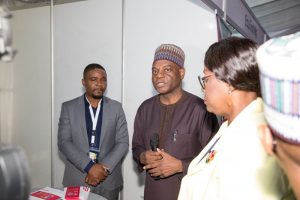
Perm. Sec. inspects Skool Media stand while the Project Coordinator, Moses Imayi explains their activities.
“We must make our education competitive and attractive. Today, we use games to make education fun such that the children while playing they learn too. So, we must make our graduates employable.
“At the same time, we have to emphasis entrepreneurship. To create more jobs, we need more entrepreneurs who are using technology to innovate whether in agriculture, health, education, telecommunications, manufacturing, etc.
“As a government, we are keen to always facilitate public-private-partnerships that enable investments in the sector knowing that the expectations are huge.
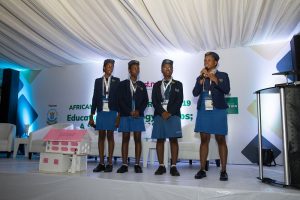
E-School Demo by students of Queens College Yaba, Lagos State.
He also called on stakeholders to create a structure for accountability among the school owners, teachers and students as means to tackle laxity in the system.
He however, did not fail to emphasis on the need to equip and re-equip the classrooms and laboratories with state-of-the-art tools to facilitate effective teaching and learning environment.
Earlier, the Acting President and Chairman in Council, Nigerian-British Chamber of Commerce, Mr. Kayode Falowo, said that Conference: ‘Education, Technology & Jobs; A Synergy that Works’, was convened as part of the Chamber’s mandate to support the socio-economic development of Nigeria through educational development.
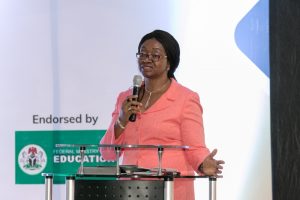
Bunmi Afolabi, Director General, Nigerian-British Chamber of Commerce
He said the Chamber African Edu-Tech platform will continue to provide the government, regulatory agencies, e.g Federal Ministry of Education, NUC, NERDC, WAEC, etc. and educational professionals, the opportunity to interact and share experiences on the revitalization of Nigeria’s education system, through the application of technology and innovation as key ingredients for educational transformation.
On his part, the General Manager, Partnership Implementation at Skool Media Nigeria Limited, Mr. Charles Dungor, told TechEconomy.ng that the goal for African Edu-Tech Conference was to bring all stakeholders in the education space to brainstorm on how best engineer a better system that recognises need for grooming students with 21st Century skills.
“I am sure that in the global scale we all know what is happening in Nigeria due to the decadence in the Nigerian educational system. We believe developing a platform as this will be an avenue for people to interact: proffer solutions; get public-private participants under a roof to dialogue and see how best to tackle the challenges so we can become globally competitive.
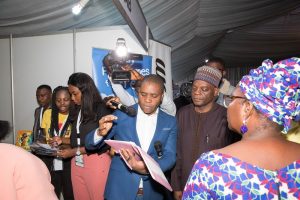
Exhibition Inspection by Arch. Sonny Echono, Permanent Secretary, Ministry of Education.
“The goal is simple: we have a lot of young people moving from the Secondary and colleges to universities, and other graduating from the universities, but they are not employable. This informed the theme of the conference, ‘Education, Technology & Jobs; A Synergy that Works’. How does this work? It deals with a competitive and effective interaction among stakeholders in the education sector, innovation (ICT) ecosystem, public-private sector participants to synergize,” Mr. Dungor said.
He continued, “As the first edition there will be a communiqué from the Conference to be sent to the government to highlight issues that were portrayed and solutions or recommendations proffered to resolve those educational issues.
“We have the body in charge of curriculum; the NCC that regulates telecoms and can recommend how they could go about assisting the education sector through their product offerings; NECO, which is an examination body and also WAEC; I believe some of their takeaways from this conference will reflect in decision and policy-making processes, just as the Acting Minister of Education, Arch. Sonny Echono who doubles as the Permanent Secretary, Federal Ministry of Education, delivered the keynote; he spoke ‘to the topic’ and proffered solutions from the Government point of view. He also staked clearly what the government is doing to bridge the gaps in the system and took feedback from the participants mostly from the private sector”.
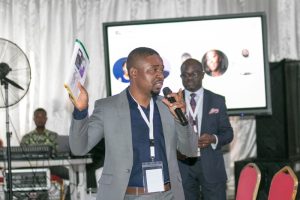 Moses Imayi, Co-Founder/Project Coordinator, Skool Media.
Moses Imayi, Co-Founder/Project Coordinator, Skool Media.
Also commenting, the Principal, Olishore International School, Osun State, Mr. Derrick Smith, said in an interview with TechEconomy.ng that “the case with our schools is that we have to review the curriculum. We have to upscale the courses to reflect skills for the 21st Century among the students; such as critical thinking and problem solving, creativity, imagination, communication skills that will help them become citizens of the world.
“The curriculum should vive room for the children to develop personally; bring up ideas, research, because it is no longer fashionable to teach-for-passing-exams; our children need to have the skills that are necessary in the workplace when they graduate which are also constantly changing. It is no longer interesting to train a child for a particular job; their skills should work in a verity of jobs,” he added.
Olishore International School is a leading community committed to academic excellence, nurturing each child to their full potential, developing leaders for the dynamic global society in the 21st Century.
The Nigerian Communications Commission (NCC) carefully designed and implemented the Advanced Digital Awareness Program for Tertiary Institutions (ADAPTI) as means to bridge the digital gaps that exist in the academia.
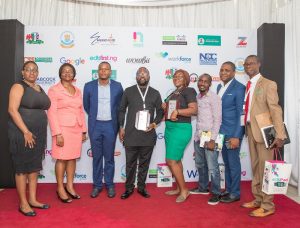
L-R:Tosin Koyejo, Founder, Chronicles Software Development Company; Bunmi Afolabi, Director General, Nigerian-British Chamber of Commerce; Charles ungor, General Manager, Edufirst.ng; Kelechi Uchena, Co-founder, Nigenius; Adetola Salau, Carisma4U Educational Foundation ; Yomi Adedeji, Co-Founder Softcom; NERDC Representative
This was disclosed by the Executive Vice Chairman of NCC, Professor Umar Danbatta, who spoke through the Director Research and Development NCC, Ephraim Nwokonneya.
He said that the project involves the provision of suites of e-learning applications for academics, students in tertiary institutions.
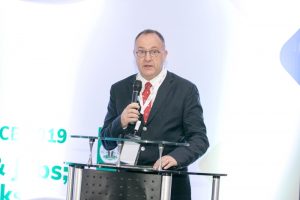
Mr. Derrick Smith, Principal, Olishore International School, Osun State
Danbatta whose speech dwelt on the theme: ‘Promoting Internet Accessibility for Inclusive Learning and Development in Nigeria’, said that internet accessibility is at the heart of digital inclusiveness.
“It is indeed the practice of ensuring that there are no barriers to prevent interaction with or access to the internet”, the NCC boss said, “Coming down home to the Nigerian Communications Commission (NCC), facilitating the development of a knowledge-based, inclusive and globally competitive environment, is at the heart of our regulatory focus. Hence, the first item on the current 8-point agenda of the Commission is to facilitate broadband penetration in the country. We have carefully chosen this critical agenda to underscore the fact that the provision, access and use of affordable fixed and mobile broadband are critical for ubiquitous internet accessibility.”

Director Research & Development, Ephraim Nwokonneya, representing NCC’s EVC
NCC’s ADAPTI program involves the provision of computers, other ICT equipment and necessary facilities to provide lecturers, staff and students with the requisite ICT skills essential for the 21st Century digital economy.
“Through this program the Commission is able to specifically provide the tools that will enable familiarity, skill development and confidence in the utilization of ICT in teaching, research and learning”, he said.
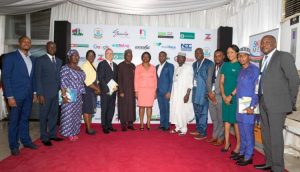
Group photograph of facilitators and participants at Edu-Tech Conference 2019
The Conference had in attendance the Permanent Secretary, Federal Ministry of Education, Arch. Sonny Echono; Director General, Nigerian-British Chamber of Commerce, Bunmi Afolabi; the Co-Founder and Project Coordinator at Skool Media, Moses Imayi; Digital Innovation & Country Manager, EduFirst Ng, Idris Oladipo; Principal, Olishore International School, Mr. Derrick Smith; Principal Consultant, Leading Learning Limited, Folasade Adefisayo; Teal Lead, HR Strategy & Projects, First Bank, Tomilayo Esan, among other speakers and moderators. It also featured exhibitions, presentations by students, panel discussions, etc.
Telecom
Navigating the Path to Sustainable Telecom Services for Subscribers
By Dinesh Balshingh
As Nigeria continues its journey towards becoming a digitally driven economy, reliable telecommunications services remain the backbone of our collective progress. At Airtel Nigeria, we are committed to delivering world-class connectivity to millions of Nigerians, enabling economic growth, empowering businesses, and enhancing lives.

We understand that the future technology needs of the country, as ushered in by the highspeed 5G era of AI, Cloud computing, Data science applications, and Blockchain, should be directing significant investments towards building a resilient network. However, the industry faces significant challenges that require a closer look as we strive to maintain the high standards that our customers deserve.
Increased Intensity of Investments: The increasing demand for digital services across sectors such as education, media, banking, transportation, and manufacturing has come with an increased demand on telecom capacity.
Upgrading networks to deliver more data capacity is key to a sustainable future. To help ensure that the Nigerian economy keeps pace with the global improvements in technology and communications while supporting the aspirations of consumers, we also take on the responsibility of executing new technology and system upgrades as well as improved security. Data security is now more than ever a priority as more and more people upload personal information online.
All of these require significant investments which are sourced from the international markets at costs denominated in US Dollars. In the past three to four years, for instance, the dollar has gone from exchanging for about N500 to over N1,600.
This more than three-fold increase in foreign exchange conversion exponentially increases the cost of investments required to run a good quality network.
In addition to this unprecedented hike in capital expenditure, the operating costs have surged dramatically, with operating expenses rising by over 300% in the last 18 to 24 months alone.
While several critical areas of the business are impacted, I would, for expediency, focus on three of those areas: Rising Energy Cost, Infrastructure Challenges, and a Commitment to Quality Service.
Rising Energy Costs: Powering telecommunication infrastructure requires significant energy resources. Energy is the single largest operating cost for running a network. With increasing global energy prices and while efforts are ongoing to fully stabilize power supply in Nigeria, Airtel Nigeria and other operators in the sector are incurring soaring costs to keep networks running seamlessly.
Infrastructure Challenges: The industry continues to grapple with rampant fiber cuts and vandalization of critical infrastructure. These incidents not only disrupt services but also demand substantial investments to repair and maintain facilities.
Commitment to Quality Service: Despite these challenges, Airtel Nigeria has remained steadfast in ensuring quality of service. From expanding 4G and 5G networks to meeting growing demand in urban and rural areas, we have painstakingly absorbed the rising costs of these obligations to avoid compromising the customer experience and ensuring Nigerians, regardless of their location, have access to mobile communication and remain connected to the digital economy.
Telecommunications operators have worked tirelessly to sustain services despite keeping tariffs unchanged for the last 10 years. While tariffs have remained static for over a decade, the economic realities necessitate a review to ensure the sustainability of services hence our recent application to the government for tariff adjustment which if approved will be a step towards addressing this imbalance.
It is not a decision taken lightly but one borne out of the need to guarantee continued investment in network expansion, technology upgrades, and improved service delivery.
The telecommunications sector is pivotal to Nigeria’s ambition to become a digital economy leader in Africa. Meeting this aspiration requires operators to make substantial investments in network infrastructure, spectrum acquisition, and innovative solutions. These investments come at a cost, one that must be shared proportionally to ensure long-term viability.
At Airtel Nigeria, we remain resolute in our commitment to:
Delivering Quality Services: As the government continues to monitor operators’ compliance with service quality standards. Airtel is dedicated to surpassing these benchmarks, ensuring customers experience uninterrupted and superior connectivity.
Driving Economic Growth: By expanding our network and enhancing digital inclusivity, we are enabling the government’s economy turnaround agenda and fostering opportunities for all Nigerians.
Being a Reliable Partner: Despite industry challenges, we are steadfast in our role as a trusted partner in Nigeria’s digital transformation journey.
While significant tariff adjustments have become warranted for the sustainability of the industry, Airtel has always been sensitive to affordability and understand that the price adjustments must be done gradually to support our customers’ financial positions.
“We believe that an approval of revised tariffs will empower operators to invest in capacity, expand coverage to underserved areas, aim for advanced security on the networks, and improve service quality and network availability while ensuring that Nigeria remains competitive in the global digital landscape.
As we navigate the present imperatives together, we urge all stakeholders, including customers, regulators, and partners to recognize the importance of building a resilient telecommunications ecosystem. Airtel Nigeria remains committed to delivering unmatched value while supporting the nation’s economic development.
Dinesh Balsingh is the Managing Director/CEO of Airtel Nigeria.
Telecom
Data breaches: Commission warns banks, hospitals, others against infractions
Nigeria Data Protection Commission (NDPC) has issued a strong warning to institutions and organizations found mishandling citizens’ data, promising to impose maximum penalties on violators as part of an effort to strengthen enforcement in 2025.
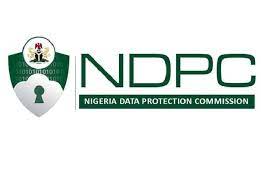
National Commissioner and Chief Executive Officer, Dr. Vincent Olatunji, emphasized the importance of safeguarding data integrity and assured that the Commission will enhance its enforcement mechanisms to hold accountable sectors such as banking, healthcare, education, insurance, telecommunications, and government agencies.
In a statement released by the Commission’s Media Department, Dr. Olatunji urged data controllers and processors to prioritize data security, warning that the NDPC’s tolerance for breaches will be minimal.
He stressed that while the Commission had previously refrained from issuing fines, there would be significant penalties moving forward for those failing to comply with data protection regulations.
The NDPC’s increased focus on enforcement aims to protect the data rights of Nigerians as guaranteed by the Nigeria Data Protection Act (NDPA).
Dr. Olatunji highlighted the Commission’s ongoing engagements with public and private stakeholders to foster awareness and compliance, underscoring that these efforts have led to the signing of Memorandums of Understanding (MOUs) with key organizations such as the National Insurance Commission (NAICOM), the National Lottery Regulatory Commission (NLRC), the Data Privacy Office of Canada, and the Dubai International Financial Centre Authority (DIFC).
Telecom
Subscriber Group Rejects Telcos Push for Tariff Hike
National Association of Telecoms Subscribers (NATCOMS), a telecoms subscriber body, has warned Nigerian Communications Commission (NCC) not accede to demands by telecommunications companies in the country to hike tariff, insisting that such increase would unleash further hardships on its members.

Chief Deolu Ogunbanjo, president, NATCOMS said in statement that the group in a recent emergency meeting over the planned tariff hike of telecommunication services, unanimously voted against any tariff hike.
Ogunbanjo, said telecoms services are taxable services under the Value Added Tax Act.
The Act was amended in 2019 by the Finance Act of that year to raise the tax rate from five per cent to 7.5per cent which was 50per cent increment and the increment has been borne by the consumers of rateable telecom services.
“That increment brought about untold hardship to our members many of who have been forced to cut back on their telecom requirements.
“As if that was not bad enough, the Federal Government got the National Assembly to enact the Finance Act of 2020. Section 37 of the Act amended Section 21 of the Customs, Excise Tariff etc. (Consolidation) Act by imposing an excise duty charge on Telecommunication Services. The then president, President Muhammadu Buhari by an order prescribed five per cent as the rate of the excise duty charge, chargeable for telecommunication services. The additional tax burden was greeted with public outcry and this association, at the prompting of our members, challenged the excise duty charge in court, in the case of Registered Trustees of National Association of Telecommunications Subscribers (NATCOMS) V MTN Nigeria Communications Limited and Others – Suit No: FHC/L/ CS / 189) 2023 on the ground of double taxation which is illegal and unconstitutional.
NCC and other Federal Bodies are parties to the suit and the Federal Government as represented by the Federal Inland Revenue Service (FIRS) entered an appearance and filed processes opposing the suit. The case is now pending before Hon. Justice Aluko, sitting at the Lagos Division of the Federal High Court, and the case is slated to come up in the court on the 13th March, 2025,” Ogunbanjo said.

 E-Business1 day ago
E-Business1 day agoA beginner’s guide to Temu: Your ultimate shopping companion

 E-Financial1 day ago
E-Financial1 day agoCBN did not Force 1000 Workers to Resign- Cardoso

 E-Financial1 day ago
E-Financial1 day agoBankit MFB Unveils Web Banking Platform

 Telecom1 day ago
Telecom1 day agoNavigating the Path to Sustainable Telecom Services for Subscribers

 E-Financial1 day ago
E-Financial1 day agoWorld Bank Okays $1.5Bn Loan to Nigeria in Support of Tax Bills

 Telecom1 day ago
Telecom1 day agoData breaches: Commission warns banks, hospitals, others against infractions

 Telecom3 days ago
Telecom3 days agoTelcos Threaten to Shut Down Services in Some Parts of Nigeria over Tariff
- Telecom2 days ago
Subscriber Group Rejects Telcos Push for Tariff Hike


























